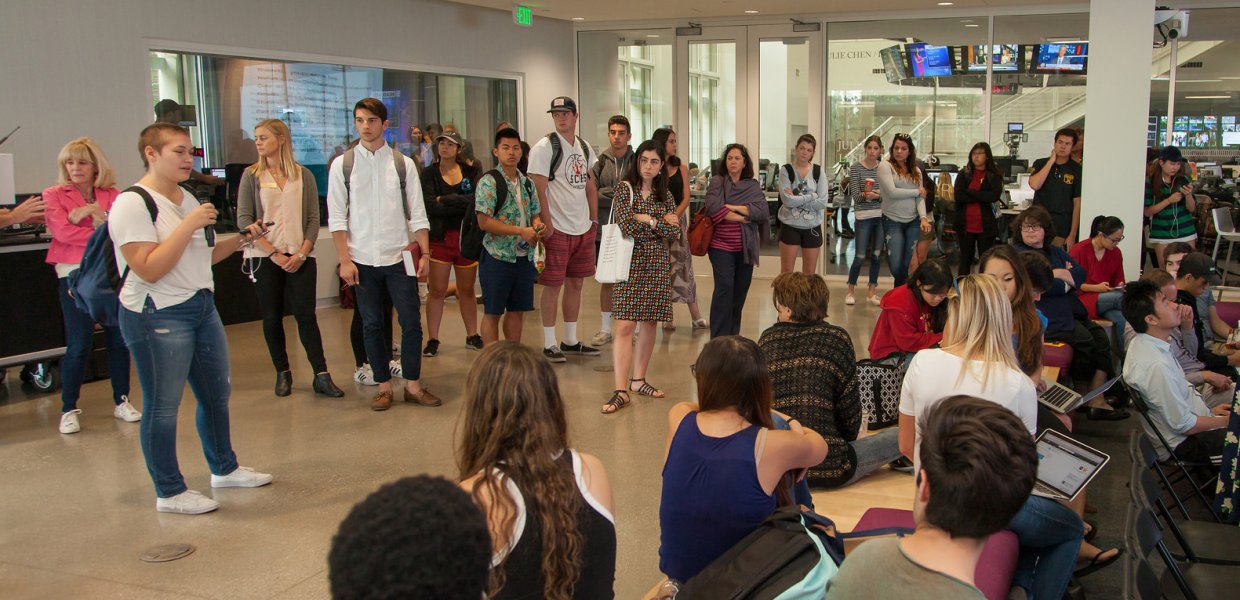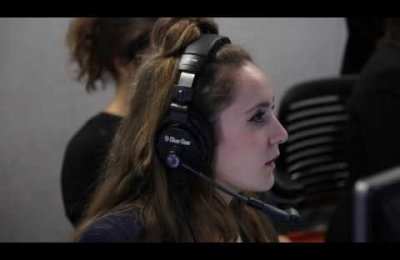One week after presidential election results stunned the nation, there are still uncertainties about what a Trump presidency means for the future.
As part of what will be an ongoing dialogue at USC Annenberg on the implications of this year’s election, students and faculty were invited to join a discussion titled "The Presidential Election 2016: Where Do We Go from Here?" held at the Wallis Annenberg Hall lobby on November 15.
Hosted by USC Annenberg Dean Ernest J. Willson III, School of Journalism director Willow Bay, and School of Communication director Sarah Banet-Weiser, the forum invited students and faculty to share concerns about the current political climate and collectively ask how the country moves forward.
Below are excerpts of questions and comments posed by students and faculty members during the discussion.
On why it is important to have this discussion right now
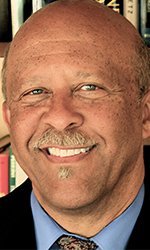
This is a critical time to have an important discussion. The three of us emphasize the word "discussion," which is listening as much as speaking. I do want to mention that we think this topic is so important that we are planning to continue events like this moving forward. These are tough times for many of us. Because this is our sentiment, this is our ethics, these are our commitments, these are our promises, and these are our offerings.
Sarah Banet-Weiser:
To borrow from Geoffrey Cowan, who said this to me earlier today, "now is the time for the sixth stage of grief." You know there are five stages of grief. The sixth stage of political grief is organizing. It's channeling sadness into anger, and channeling that anger into productive conversation, organizing and creating a community. Because we are so privileged to be here at USC, to be at a university, which historically has been a space for scholarship and activism. Those two are not always aligned, but it is a relationship that we need to struggle for and maintain. The university is a space for reflection, it is a space to create community. So that's what our commitment is to our students here at Annenberg, and overall at USC.
Willow Bay:
One the things we've been talking about is our need to listen carefully and listen with intent. And also listen for what's not being said as much as for what is. Just think about our title, "Where De We Go From Here". Where do we go at this deeply unsettled moment, where we feel shaken to our core, where we feel our institutions have ben upended? How do we create the kind of community, the kind of school at Annenberg, the kind of university, the kind of country that we want to have starting right now? How do we think about the work that we do here, the scholarship and research that we do and the classes that we teach?
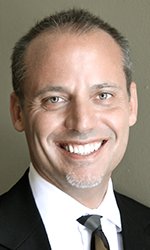 Professor David Craig on the current situation's historical context
Professor David Craig on the current situation's historical context
When I was a sophomore in college I came out of the closet. A week later Time magazine announced a "gay cancer." It took our government another five years to even acknowledge the "cancer" existed. At that moment I could've been fired, kicked out of school, kept from getting employed, and prevented from getting a home.
Over the next twenty years, we have seen tremendous progress happen around these issues. We now have rights to marry, we now have rights to homes, we now have healthcare. These are some of the achievements that have been done by virtue of young people coming together, not only forming alliances amongst shared identities, but alliances with people with other identities but shared values.
From a historical perspective, we have been in dark times in this country. As were our parents in our '60s, our grandparents in WWII. We recovered, we came back, we were capable of forming these alliances and unions, and there are people who share our values. It is possible to see change happen, and it will happen again.
On taking the election results personally
Zoe Citterman (B.A. Communication '17):
When this is something that feels so incredibly personal to so many people—for example, my mom voted for Trump—it's really hard for me to move forward and talk to her or talk to other people right now. So how do we open up that dialogue without taking it personally? How do we have these conversations without them getting too polarizing?
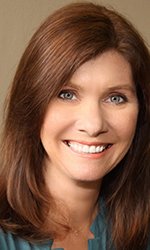
It feels personal because it is personal. I don't think anyone should ever apologize or feel bad or feel like they're missing something because it feels personal. This is personal. It is about your identity, your body, your community, your family. When someone is feeling this personally, when someone is emotional, or saying this is personal, it's not okay to say "you're freaking out." It's not okay to say "you're overreacting." There's no overreaction to this. It is all reaction, and we're all reacting in different ways.
Dean Ernest J. Wilson:
Yes, it feels personal. I have been struck by the number of people—Varun Soni who's our Dean of Religious Life, many students—who have come up and said I have not felt this personal an attack in a long time. To echo Sarah, it is because it is personal. Some of the people who said this to me, walking across this campus, had heard the n-word. Jewish colleagues have felt that they have been attacked. If we don't feel this as something that is personal, that's probably odd. To make it sustainable I would encourage you to keep feeling it's personal. That's what's going to sustain you for the rest of your life.
On how we to communicate with people who do not share our views
Sahil Dhaliwal (B.A. Communication '16):
I have a bunch of friends I know now that were silent for a long time but now have expressed that they did vote for Trump. These are friends that I have known for years, and they're not the typical racist, misogynistic, crazy people that we see on the news. The number one thing I hear from them is, we didn't want to say anything because everybody is just going to label us really quickly, nobody is going to understand us. So I made it a point in this last week to just really try to understand and hear them out.
I was wondering how we can do that with other Trump supporters—not even just Trump supporters, but other conservatives, people that have different views than us. Because labeling and yelling, no matter how much we think they deserve it, it's not gonna get people to listen to us.
How do we open this dialogue? It's so frustrating, so hard, and it is deeply personal.
Sarah Banet-Weiser:
If we recognize that there's fear, and that it's not just fear on one side or the other, but it's fear that has different starting points and different aims and goals, we can try to figure out a way to channel that into something that is productive. This is something that is tearing apart families. It is tearing apart friendships. We can't let that happen. If you are upset and sad about what has happened then don't give it any more power to tear relationships apart.
David Craig:
I just want to add one other point. The vote was not 51-49, it was 26-24. 50% of this country didn't vote. There are a lot of complex reasons - a lot of people who share our values from the left who were disinterested, didn't think their vote mattered or thought the polls were right. We shouldn't give up on having these conversations and trying to persuade people who voted on the other side, but I think it's important to recognize there were a lot of people who we could persuade to vote next time. They probably woke up the next day thinking they made a huge mistake and I think there's a real opportunity to focus a lot of attention on those people.
On how to break out of the bubble
Drew Schwendiman (B.A. Broadcast Journalism '17):
We've seen it in the news, and we have a lot of protests here in Los Angeles, even though we heavily voted for Hillary. I think it's clear to us now that the world, the America that we thought we lived in, isn't the city and the school that we currently attend. How can our classes and our professors help us break out of this bubble and venture out of it and still retreat to where we feel safe?
Sarah Banet-Weiser:
Bernice Johnson Reagan, who was a singer with Sweet Honey in the Rock, wrote at the beginning of the 21st century a piece called "Coalition Politics Turning the Century." She said it is so comfortable in our homes and in our own little boxes. We get so much satisfaction, fulfillment and meaningful identity out of that. It is really painful to step outside the box and to go to someone else's and try to have a conversation. One of the things we have to acknowledge is that this is painful, that this isn't easy.
What we have to commit ourselves to is respect—mutual respect. You don't ever have to agree with someone who holds different values than you. But it makes sense for us, given that this happened, to try to understand: why is it that they hold those values?
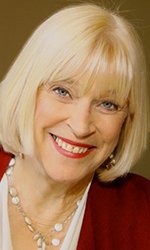
You want to know how you can break out of your bubble? Break out of it. It's incumbent on all of us to learn how to do that. Especially for our journalism students, we need to get out into areas that we don't understand. I live a good portion of the year in Colorado in a rural community. I'm sure the half my neighbors voted for Trump. I like these people - I'm looking forward to talking to them about this. I think one of the things we need to do as a journalism school is to start sending students out into rural areas and geographic areas where they maybe do feel a little uncomfortable. That's what this is about. So break out of your bubble and go do it - that's for journalism students but for anybody. Get out and see the country and talk to people.
On creating safe spaces for people that feel targeted
Melissa Kil (B.A. Communication '17):
Both of my parents were born in Korea. Their mentality is that they started from the bottom and if they can do it, so can anyone. My dad voted for Trump. I couldn't say anything to change his mind. But with my mom she was sure in her decision until we had a very emotional conversation where I said that if you care about me as a woman, and my older sister, and our bodies and our rights and our lives, please don't vote for Trump. [...] That was the thing that tipped her over the edge and she ended up voting for Hillary Clinton.
I have already seen so many instances of acts of hatred, violence against people of color, LGBTQ people, people who are my friends who have just been walking on the street and are sprayed with hoses. I want to find ways where me, my friends and our community can make safe spaces for people not to experience things like that because it's not okay.
Sarah Banet-Weiser:
I think it is the obligation for those of use that are protected by privilege to create those spaces, embrace those spaces, or open those spaces for people who are not as protected by privilege. It is our job for democracy, for USC. I am in a position of privilege. It is my moral, political, ethical—not obligation, not duty, but desire to create community and create a safe space for people that I love, for people that I don't know, people who are targeted in these ways. What I'm trying to do is encourage other people who are in positions of privilege to create spaces, to open spaces. Make sure that if you see something like that, you take a stand. You defend and argue with that point of view.
Dean Ernest J. Wilson:
None of us should try to do this alone. It's an alienating feeling. If you think about the way the civil rights movement started a generation ago, these were basically young people your age, who went to a lunch counter and couldn't get served. So three of them said I don't want to go forward with this anymore. Rosa Parks was sitting in a bus by herself. And she said I don't want to go forward with this anymore by myself. So three people got together and had a conversation about it. And they invited two more people so that made five people. Three months later there were 50 people having discussions about human rights, openness, honesty and participation and anti-racism.
It's an ongoing struggle. We cannot do it operating one on one. We have to find groups. So start a discussion group around these issues. That's something that could be done in a sorority, a fraternity, a classroom, but we've got to do it in a way that's collective.
On the proliferation of "clicktivism,"
Brooke Fry (B.A. Communication '17):
I observed a lot of clicktivism, which I know is a common topic in our Comm classes. Lots of Facebook posting, lots of articles. How do you think we can turn that into tangible acts using our financial resources and our time to go out and mobilize people, as opposed to merely getting them to share an article?
Sarah Banet-Weiser:
The key is for us to resist just circulating as if circulating is activism. Engagement is activism. Public awareness is really important, but we do have to take it to the next level. We do have to engage with it. It's great to retweet or "like" something or click on something, but the next step is to take those messages we feel are important enough to retweet, and take them to our friends, our communities, our classes, your professors, and ask to engage those points.
Michelle Forelle, (Ph.D. Candidate, Communication):
One thing I keep hearing from my activist friends is that we don't need to reinvent the wheel. I know that at Annenberg we talk a lot about entrepreneurship, but especially when it comes to community action where networks are so important don't feel like you need to build it yourself. Go find an organization that's doing the work that you want to contribute to and become part of it rather than feeling like you need to start from scratch.
On how we can restore hope in this current political climate
Gabrielle Stieglitz (B.A. Public Relations '18):
I'm feeling really hopeless. I'm wondering if there's a way to restore hope in everyone rather than staying so divided. I feel like right now everyone's just getting further into where their opinions were originally and it's just making me feel worse and more scared of what our country is eventually leading to.
Assistant Dean of Student Affairs, Gordon Stables:
The biggest thing I can say is to look for classes that give you the tools, the background, the knowledge.
If there's something that you think we're not offering that would give you the tools, or the history or the foundation, come into my office or find one of these folks and make us offer those classes.
Dean Ernest J. Wilson:
Those of us in leadership positions would welcome ideas from you. Please come forward, these are tough times but we're open. We should all be creative about this and invent the program.
Let me empower you to put pressure on us to have a dialogue about changes that you want to see.
